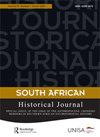同情的界限?20世纪30年代至1976年南非的医学伦理与医疗安乐死政治
IF 1
3区 历史学
Q1 HISTORY
引用次数: 0
摘要
1975年9月,在距开普敦100多公里的谷神星小医院,阿尔比·哈特曼医生因杀害父亲一案在南非引发了关于医疗安乐死的辩论。审判结束后,面对极度痛苦、严重残疾或不可避免的死亡,医生的义务和职责被广泛讨论。这篇文章首次研究了南非的医疗安乐死,为哈特曼审判及其有争议的判决提供了从20世纪30年代到70年代的背景。我在想为什么哈特曼医生承认结束了他父亲的生命,但同时又不承认谋杀。“同情是我的动机,”他说。通过关注盖伊·艾略特医生的角色,探讨了1976年之前南非同情心和医学伦理的几个复杂性。通过关注种族隔离制度下的南非医学政治,我解释了南非医学和牙科委员会(SAMDC)在1976年谴责哈特曼医生时所采取的相互矛盾的立场。最后,我指出,对哈特曼医生的判决——使他成为一个“非法律”罪犯——对南非医生协助死亡问题产生了复杂的影响。本文章由计算机程序翻译,如有差异,请以英文原文为准。
The Bounds of Compassion? Medical Ethics and the Politics of Medical Mercy Killings in South Africa, 1930s to 1976
ABSTRACT The 1975 trial of Dr Alby Hartman for the killing of his father, in September the previous year at the small hospital at Ceres just over 100 kms from Cape Town, galvanised South African debates about medical euthanasia. After the trial, the obligations and duties of doctors faced with extreme suffering, profound disability, or inevitable death were widely discussed. The first study of medical mercy killings in South Africa, this article provides context, from the 1930s to the 1970s, for the Hartman trial and its controversial sentence. I consider why Dr Hartman admitted to ending his father's life, but also entered the plea of not guilty to murder. ‘Compassion was my motive’, he said. Several complexities of compassion and medical ethics in South Africa before 1976 are explored through attention to the role of Dr Guy A. Elliott. Through attention to South African medical politics under apartheid, I explain the contradictory positions on censuring Dr Hartman taken in 1976 by the South African Medical and Dental Council (SAMDC). Finally, I point to how the sentence passed on Dr Hartman – which made him a criminal ‘non-law’- has had a complex legacy for the issue of doctor-assisted dying in South Africa.
求助全文
通过发布文献求助,成功后即可免费获取论文全文。
去求助
来源期刊

South African Historical Journal
Multiple-
CiteScore
0.70
自引率
0.00%
发文量
37
期刊介绍:
Over the past 40 years, the South African Historical Journal has become renowned and internationally regarded as a premier history journal published in South Africa, promoting significant historical scholarship on the country as well as the southern African region. The journal, which is linked to the Southern African Historical Society, has provided a high-quality medium for original thinking about South African history and has thus shaped - and continues to contribute towards defining - the historiography of the region.
 求助内容:
求助内容: 应助结果提醒方式:
应助结果提醒方式:


